The success of your virtual conference, hybrid meeting, or live event depends on picking the right audio visual event production team. Modern events need sophisticated technology and flawless execution, which makes this choice even more significant.
Picking from many audio visual services can feel overwhelming. A solid approach helps you find a production partner that delivers detailed event production services – from video and lighting to content management and speaker support. This piece shows you the steps to select an AV team that creates memorable experiences and handles complex technical requirements smoothly.
Audio Visual Event Production Guide | Real Examples 2025
audio-visual-event-production-guide
You should define your event’s actual needs before reaching out to audio visual companies. This first step will help you find an AV team that matches your specific event requirements.
Define your event type: virtual, hybrid, or in-person
Your event’s format shapes your audio visual needs. Each type needs different technical approaches:
Learn to choose the right audio visual event production team with real examples. Expert guide for lighting, sound systems, and professional event technology solutions.In-person events excel at creating human connections through face-to-face interactions. They give attendees immersive experiences where they can make eye contact, read body language, and network naturally. All the same, these events cost more for venue rental, catering, and on-site technology.
Virtual events help your message reach audiences globally without geographical limits. They’re more economical than physical gatherings but make it harder to keep attendees involved. Pop-up studios can lift content quality for virtual events as speakers can broadcast with full audio visual support.
Hybrid events mix both approaches and let participants attend either in-person or remotely. More people usually attend since they don’t have to travel. These events also give valuable data from both in-person and remote attendees through integrated polls and surveys. Keep in mind that hybrid events might cost about 20% more than single-format events because they need dual production setups.
Estimate audience size and venue requirements
Getting your audience size right is vital for successful event production. Too few seats can lead to overcrowding or turning people away, while too many might waste money.
When counting potential attendance:
- Look at similar past events and their numbers
- Think about content appeal (popular vs. niche)
- Check for timing conflicts with other events
- Review maximum venue capacity
- Include audience churn rate for day-long events
Your venue must fit both your audience size and audio visual production needs. Production resources should focus on one room where all broadcasted content starts for hybrid events. Standard stage height stays at 18 inches for in-person or hybrid events.
Smooth internet connectivity matters, especially for remote participants. Mid-size collaborative meetings might need amplification so everyone in the room can hear each other and remote participants.
A clear understanding of your event type and audience size creates strong foundations for picking the right audio visual event production team that fits your specific needs.
Research and Shortlist Audio Visual Companies
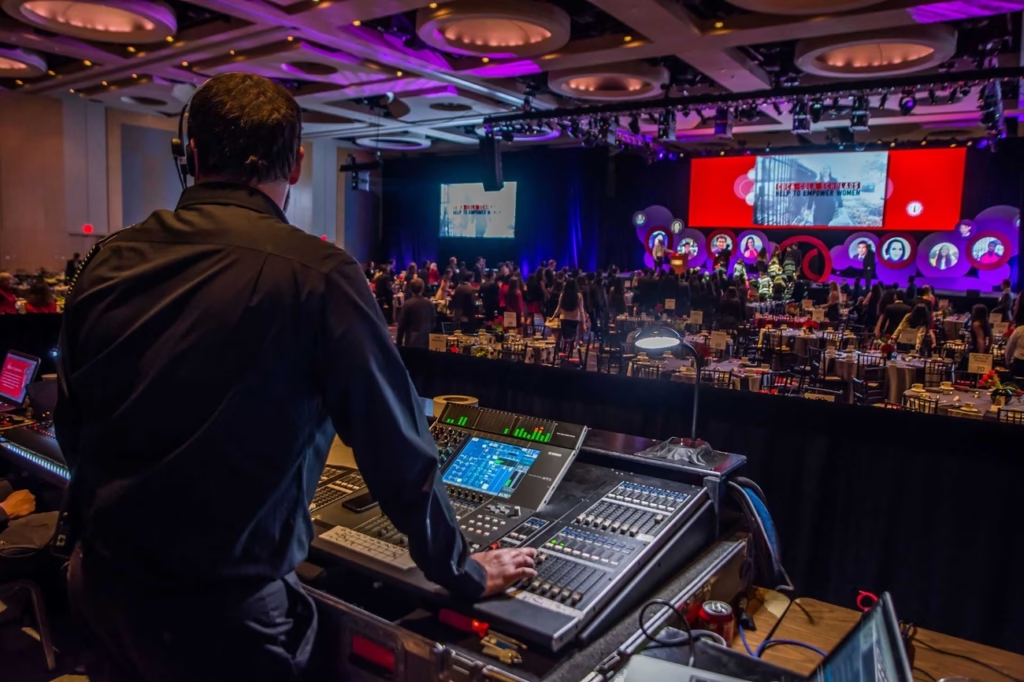
After defining your event requirements, finding audio visual companies that can bring your vision to life becomes your next significant step. You’ll need to review potential partners systematically to create a quality shortlist.
Look for companies with relevant industry experience
Audio visual industry values stability as a reliable indicator. You should pick companies that are at least 3 years old and have proven they can deliver the equipment and services you need. Take these steps to break down their background:
- Tour their facility to see how they operate
- Speak with executive leadership
- Request and contact client references
- Read testimonials on their website
Audio visual production companies love to showcase their client portfolio. To cite an instance, companies like Rent For Event highlight their work with major clients such as Netflix, TikTok, and Disney. Others display their experience with corporate events, conferences, and education sectors.
Check for full-service event production capabilities
A company that takes complete responsibility for every aspect of your production offers full-service event production. You need more than simple equipment rental, so make sure they offer:
Complete pre-event planning that has technical design, site surveys, and equipment recommendations. Ask if they handle everything in-house or use subcontractors. Companies that subcontract should manage all equipment-related questions or issues during your event.
The company should give you on-site technical support with project managers and technicians who can fix problems or handle changes quickly. This becomes vital especially when you have hybrid events that might need simultaneous troubleshooting for in-person and virtual components.
Use location-specific searches (e.g., London, Houston, Dublin)
Local audio visual partners make logistics easier and might cost less. Your search queries should include your location (like “audio visual event production London”) to find companies that know local venues well.
London’s specialized audio visual companies offer pricing from €1,000 to €5,000. Houston has full-service providers that handle everything from small dinner meetings to conferences with 5,000+ attendees. Dublin’s market features companies like Conference Services, a 37-year-old business with custom-built streaming studios designed for virtual and hybrid events.
Your event’s location matters a lot—especially when you need to transport lots of equipment or work with venues that have specific AV integration needs.
Evaluate AV Teams Through Real Examples
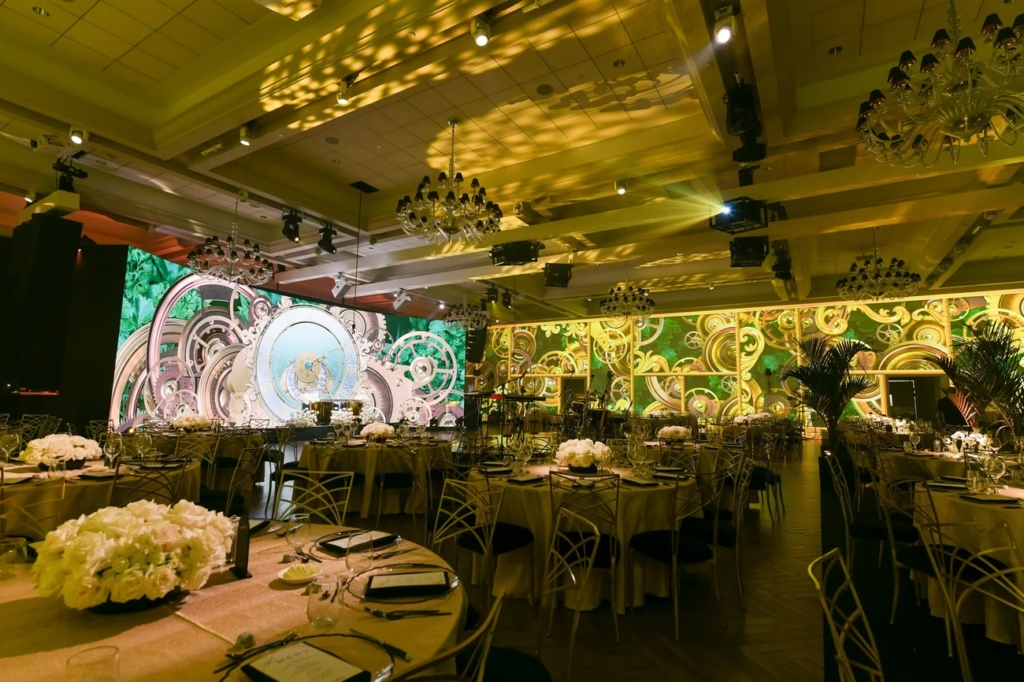
The next crucial step after creating your shortlist of audio visual companies is to take a closer look at their actual work. Their real-life examples show capabilities that no sales pitch can match.
Ask for case studies or past event portfolios
A detailed case study gives you insights into an audio visual production company’s hands-on experience with events like yours. Quality portfolios usually contain:
- Event specifications (type, location, audience size)
- Technical equipment deployed
- Creative solutions to venue challenges
Most reliable providers showcase various project examples. Image AV, to cite an instance, features events ranging from the IFMA World Workplace in Denver to the ASTMH Annual Meeting in New Orleans. As with Stagevision, they express their work on OpenText World 2024, “a multi-day, multi-venue event designed to raise OpenText’s brand as a global tech leader”.
Review testimonials and client feedback
Client testimonials give honest points of view about an audio visual event production team’s dependability. You should also:
- Ask for video testimonials to ensure authenticity
- Get feedback from events of similar scope
- Look for common themes in customer reviews
A client’s words about Five-Star Audio Visual tell it well: “Three things that set them apart: Professionalism, Persistence, Price. They perform day in, day out. They don’t let their guard down.” Such specific feedback proves more valuable than generic praise.
Compare technical capabilities and creative design
Successful events need both technical precision and creative vision. Your evaluation should check:
The AV crew’s familiarity with your equipment needs Their methods of optimizing venue layouts Creative solutions they’ve used at similar events
Industry experts point out that “The downfall of many events is renting AV equipment rather than hiring an AV designer”. The best professionals “survey venue layouts to find any sound and lighting weaknesses and determine practical solutions”.
Creative skills can transform basic presentations into memorable experiences. One AV production director puts it this way: “Look at Instagram Reels or YouTube Shorts–you can create a lot of information and put it into a 60-second video. But once it’s 30 feet high and 60 feet wide? You’re creating a shared emotional experience”.
Questions to Ask Before Signing a Contract
Before you sign a contract with potential audio visual event production partners, you need to see concrete examples and ask specific questions. Your partnership’s success depends on the answers you get, especially when challenges come up.
What’s included in their AV production services?
You should first ask for a detailed breakdown of equipment for each room. A reliable audio visual production company will give you complete documentation that has:
- Itemized equipment lists that you can review with your speakers
- Clear labor rates that show standard hours versus overtime
- Setup and strike timelines that line up with your venue access
“Having a detailed listing does three things: you can send it to your speaker for agreement, determine if any equipment is missing, and accurately assess your equipment budget,” notes one industry expert.
How do they handle last-minute changes?
Last-minute adjustments happen often in event production. Your contract should clearly spell out:
- The process to submit and approve changes
- Extra costs for last-minute requests
- Communication protocols during critical timeline changes
Note that “events should be strategically planned to handle anything that may happen”. You should ask potential providers about their experience switching between formats – from in-person to hybrid or virtual – if circumstances just need it.
Do they offer on-site support and backup plans?
Technical issues can disrupt even well-planned events. Make sure your audio visual services contract has:
- Dedicated on-site technicians throughout your event
- Backup equipment for essential components like microphones and projectors
- Plans for potential emergencies
“At least one AV tech should be on stand-by during the event who can troubleshoot minor issues quickly and more significant problems if they arise”. It also helps to ask if they provide “in-person or remote support during the live event to handle any unexpected issues”.
These three vital areas will help you learn about how an audio visual event production team performs under pressure – before you sign any binding agreement.
Conclusion
Your event’s success largely depends on choosing the right audio visual production team. The selection process becomes manageable with a systematic approach.
A clear definition of your event needs comes first – whether you plan a virtual, hybrid, or in-person gathering. Research into potential partners should include an analysis of their capabilities and track record. Case studies and ground examples give a clear picture of their performance and reliability. Questions about services, change management, and backup plans deserve attention before contract signing.
Note that top audio visual teams become true partners instead of basic service providers. Their technical expertise and creative vision help bring your event concept to life. Cost is important, but professional execution and reliable support are worth more than the savings from less experienced providers.
Your event’s outcome relies on careful partner selection. A well-planned selection process today ensures smooth execution when the big day arrives.



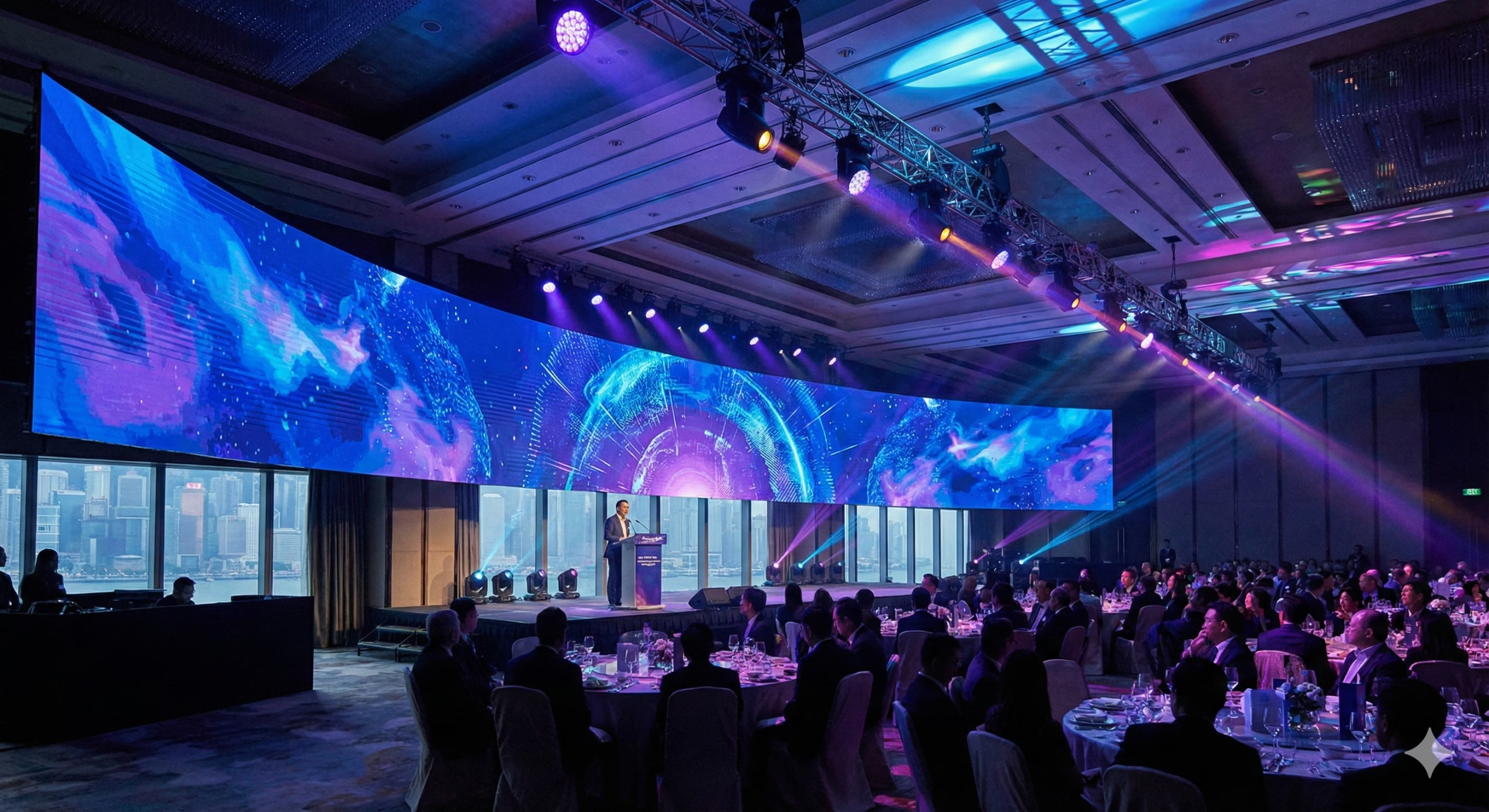
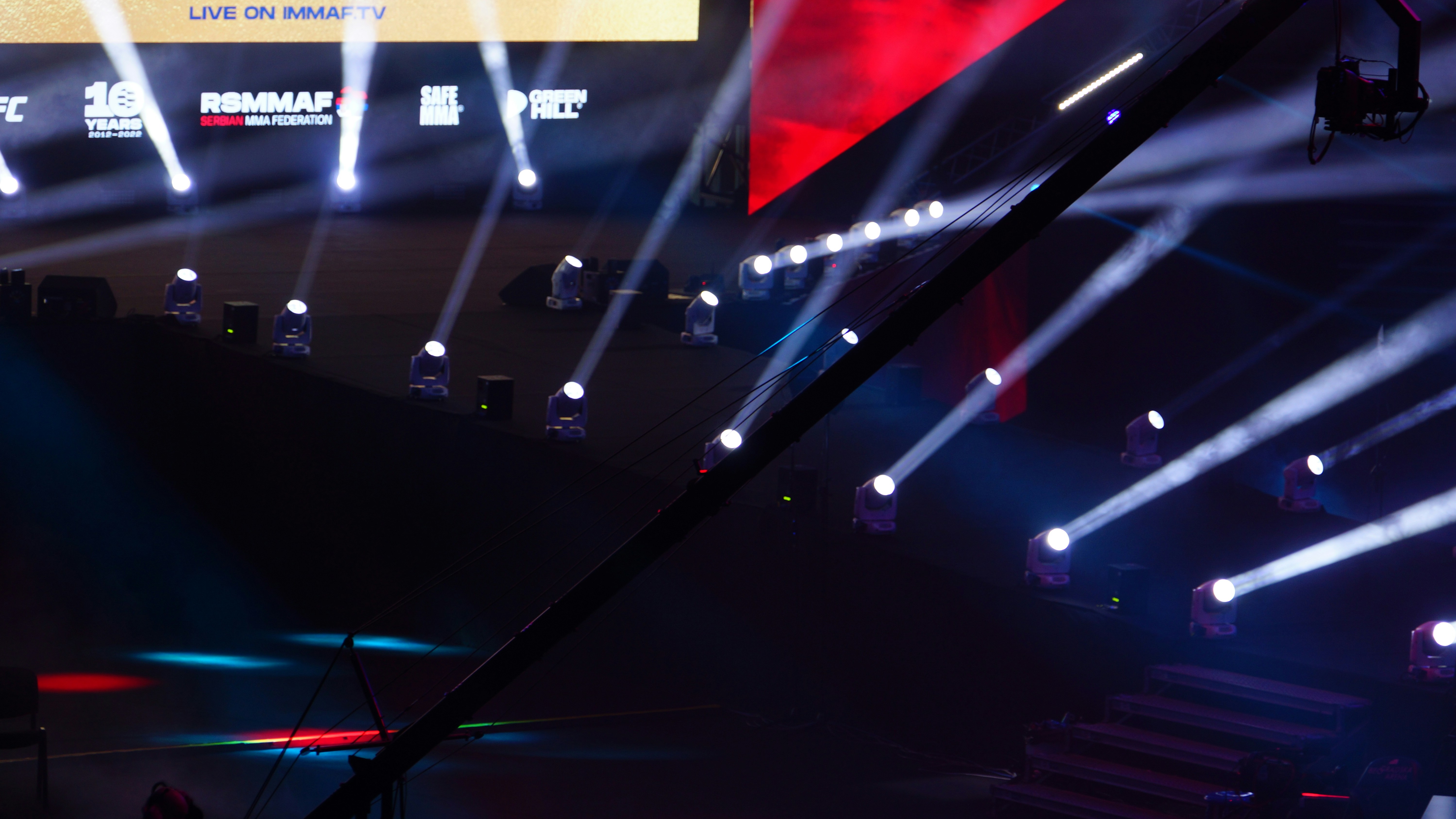
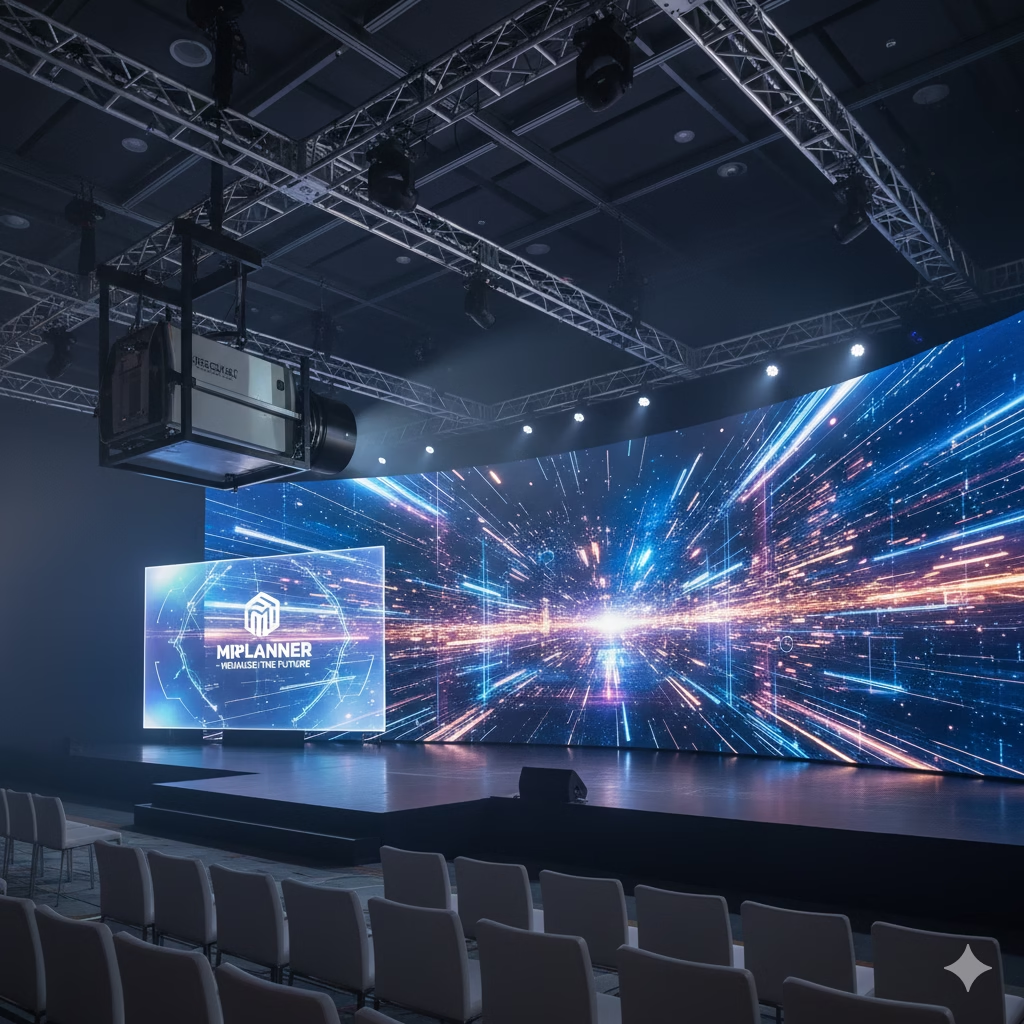
你必須登入才能發表留言。